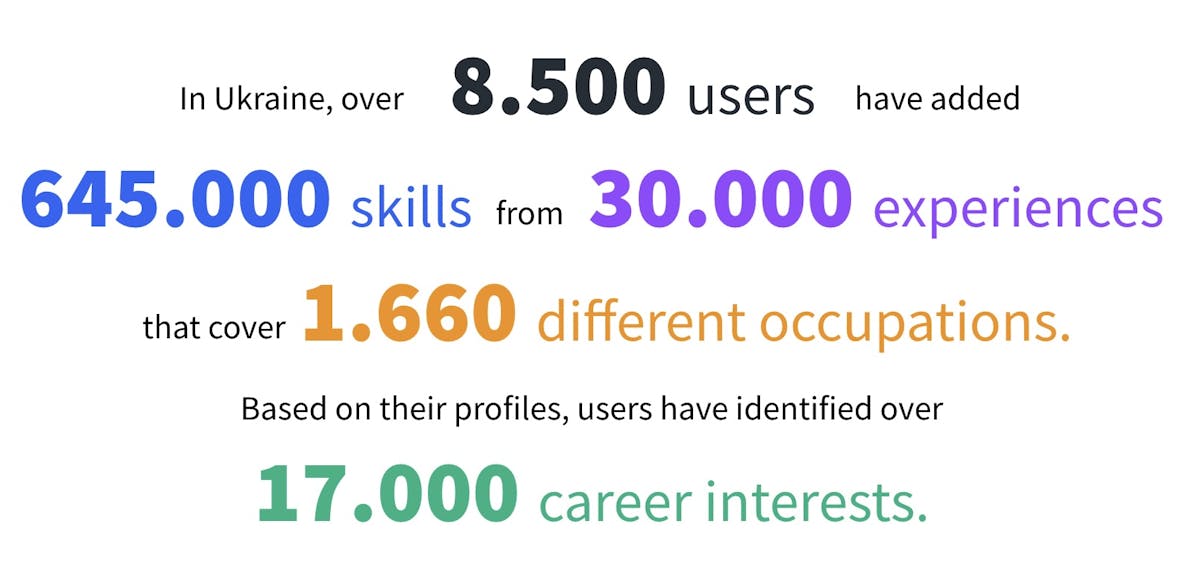Unlocking the Potential of Ukraine's Workforce
SkillLab’s recent white paper, “Unlocking Workforce Potential: The Power of User-Validated Skill Data in Ukraine,” offers valuable insights into addressing Ukraine’s labor market challenges amid ongoing conflict.
We recently published a white paper, “Unlocking Workforce Potential: The Power of User-Validated Skill Data in Ukraine”. The paper, which is the first in a series of three, offers valuable insights into addressing Ukraine’s labor market challenges amid ongoing conflict. Based on the work with the State Employment Service of Ukraine, supported by the Norwegian Refugee Council, the World Bank and the Ministry of Economy and Ministry of Digital Transformation of Ukraine, the study analyzes data from 8,500 Ukrainian job seekers, encompassing 645,000 skills and 30,000 experiences

In the first 9 months, users have added over 645.000 skills to their profiles
Key Findings
Skills Acquisition
The most commonly added skills fall under categories such as communication, collaboration, creativity, and assisting and caring. Many essential skills are acquired through life experiences rather than formal employment or education.
Career Interests vs. Job Experience
There can be a significant gap between users’ career goals and their job experiences. For instance, only 38.05% of users interested in Gastronomy & Hospitality have prior experience in that area. Nonetheless, users had transversal and transferable skills that were relevant in the industry.
Hidden Value of Life Experiences
Many users interested in roles like cook, child care worker or cleaner possess essential skills acquired through life experiences rather than formal job roles. This suggests that informal learning can effectively prepare individuals for careers that may not align with their previous employment history.
Skill Gaps and Training Opportunities
The analysis reveals specific skill gaps that could inform targeted training programs. For example, essential skills for bookkeeping are almost exclusively acquired through formal education or job experiences, indicating a need for focused training initiatives.

Adding skills and experiences, it feels like a game.
Implications for Workforce Development
1. Recognizing Diverse Skill Sources: The study emphasizes the importance of recognizing skills from both formal and informal experiences in ensuring pathways to employment.
2. Bridging Interest-Experience Gaps: Workforce development initiatives can focus on bridging the divide between career interests and relevant experience.
3. Leveraging Transferable Skills: The data suggests that many individuals possess relevant skills from diverse backgrounds that can be applied across various occupations and sectors.
4. Promoting Inclusive Workforce Strategies: By recognizing non-traditional skill sources, more people can be brought into the labor force, addressing immediate labor shortages and promoting economic resilience.
The findings, achieved in a short time-frame, highlight the potential of user-validated skill data in creating more inclusive and effective workforce strategies. By embracing a skills-based approach that recognizes diverse sources of skill acquisition, Ukraine can foster a more adaptable workforce ready to meet the challenges of national reconstruction and drive economic recovery.
Read the full white paper in English and in Ukrainian.